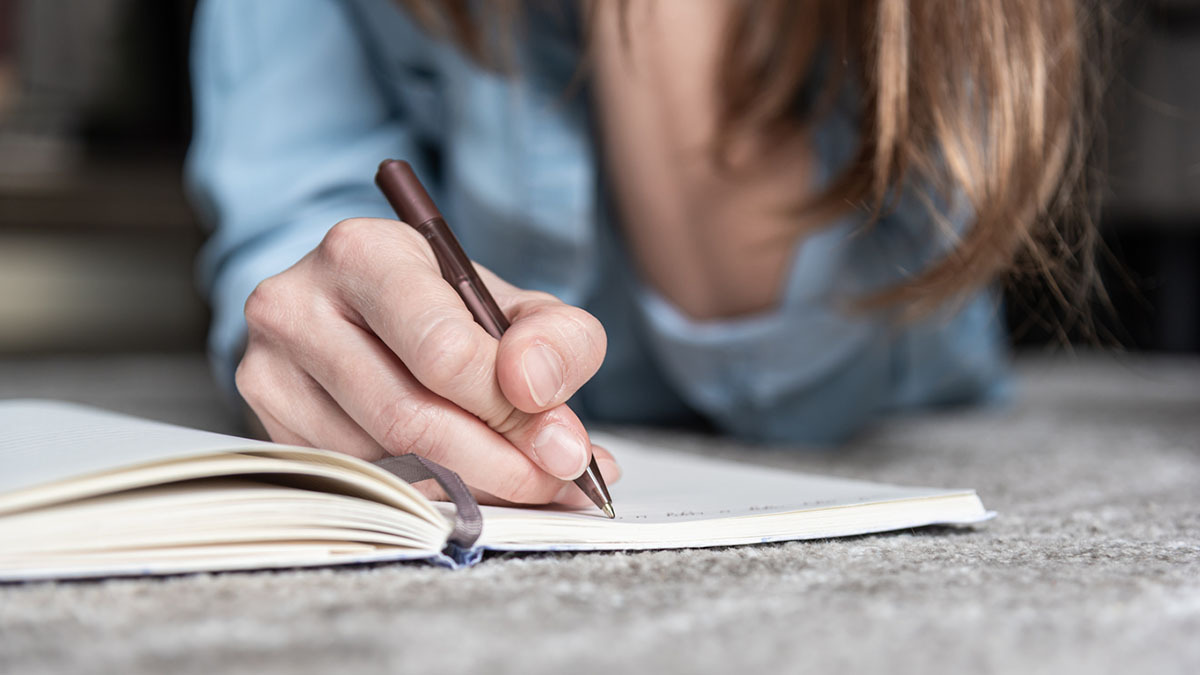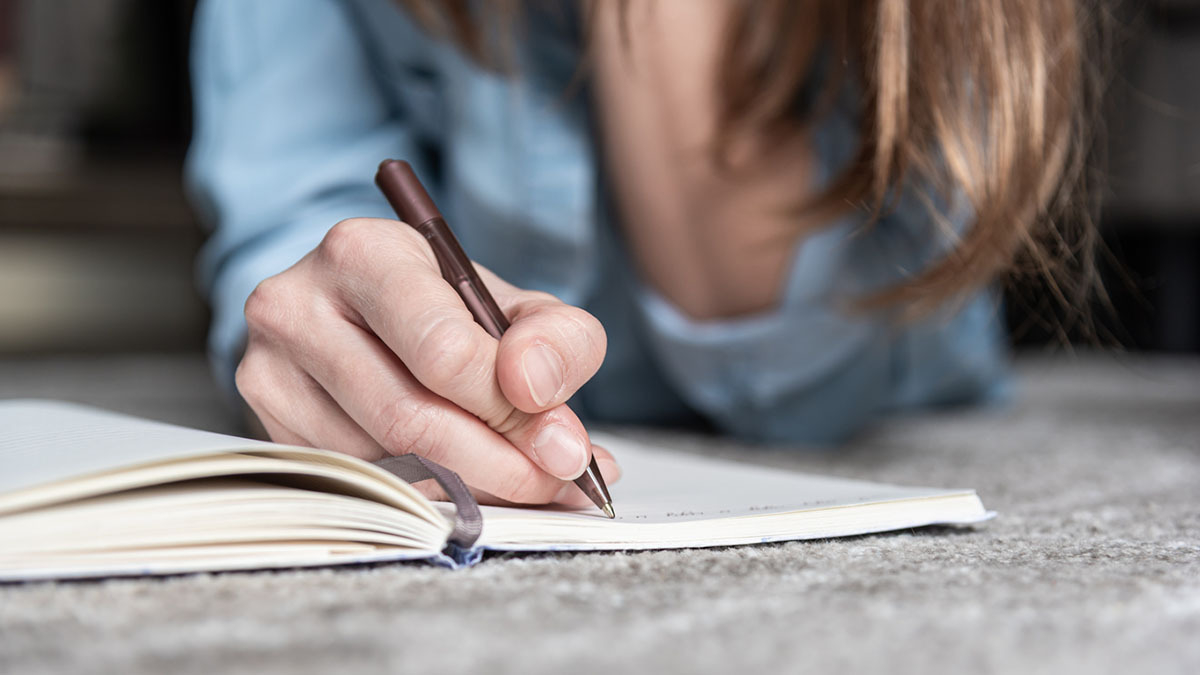
I’m doing Julia Cameron’s Morning Pages at the moment as I’ve always wanted to write a book, if only I could get over my perfectionism and bypass my critical voice.
Cameron’s concept seems simple but takes a lot of discipline. First thing every morning, as soon as you wake up – before putting on the coffee or getting dressed, but (I assume) after having a wee - write three A4 pages longhand non-stop. Do not even pause to look out the window. Keep going. Doing it first thing means you still have your toe dipped in your dream world, closer to the unconscious.
I have done it for two weeks (so far) and learned
Journaling doesn’t have to be this hard-core. My preferred way to do it is with a steaming cup of cocoa, cosy blanket, soft jazz, rain on the window and flickering scented candle, such as ESPA's hand-poured soy wax Positivity Candle (£35) with Rose, Gardenia and Jasmine (pictured below).

Studies have shown writing strengthens your immune system, improves memory, intelligence, reduces stress and improves sleep. Journaling can help us organise our minds and even make sense of trauma or our own feelings.
I absolutely believe that journaling can save your life having seen it help with clients, my kids, and myself. With a journal, you get to check in with yourself, create a self-care ritual and honour your life. It’s like having a therapist on hand, albeit one that doesn’t answer back.
But I can’t write…
It doesn’t matter. You are not getting marked by your English teacher. If you were to be marked by an imaginary Journal Teacher, however, you would get top marks for letting go of all the rules – forget spelling, grammar or sentence structure, just write. It doesn’t need to make sense to anyone, not even you.
Remember - Perfectionism is the enemy of creativity.
The reason for doing it this way is to bypass your critical voice (think your meanest English Teacher who was a bit trigger happy with the red pen) and tap into your authentic, creative self. This is where all the juiciest ideas, thoughts and emotions lie – you may catch a glimpse of them on your first attempt or it may take time.
You can write any way that feels right. It could be sentences, it could be lists or poetry. One thing that might be a good rule – if you want – is to date every entry in case you want to keep an eye on how you have been feeling over a period of time.
If you don’t like writing, you can draw your journal, or collect pictures and images and scrapbook it. It can be a real, live 3D journal, a computer document (encrypted with a password) or you can download a journal app.
One of the most popular therapeutic or self-help methods is expressive writing. This is usually timed (anything from five to twenty minutes) or as with the Morning Pages limited to three whole pages. The only rule is – don’t stop writing until your alarm beeps. You put pen to paper and keep going. It may take a bit of practise: think of it as learning to mind surf, catching a thought wave and riding it.
But I have nothing to say…
That’s the other rule of journaling – you can write about anything. You can even write about thinking you have nothing to say.

I don’t have time!
It’s totally up to you how often you write in your journal – no one is judging. There are no deadlines. Sometimes I write every day, then don’t write anything for a month or two, or even years. If you are feeling overwhelmed and think, “I haven’t written in my journal for a while”, pick it up for a few days and see if it helps untangle things. Making time to write a journal is an act of self-care: if it becomes stressful it’s clearly not for you at this moment. And that’s okay.

Savant Spy
21st October 2020
Spy Likes:
Clever, inspiring design, sublime views, a vast, clean and empty pool, solitary relaxation areas to read, write or commune with my muse.
Spy Dislikes:
Small talk, discussions about spirituality or astrology, any products containing tea tree oil or aloe (sadly am allergic), busy pools where you can’t do laps.
